Several US universities have posted information advising international students about travel to and from the country after President-elect Donald Trump takes office on January 20, 2025; as well as reassuring students about policy changes that could be detrimental to the international community on campus.
Recommends policy changes that are detrimental to international students
On November 15, 2024, the Office of International Relations at the University of Massachusetts Amherst (USA) posted on its Instagram account a recommendation for international students to return to the US after winter break before President-elect Donald Trump's inauguration on January 20, 2025. The office stated that the new President's administration may issue some bans or restrictions on international citizens entering or leaving the US on the first day President-elect Donald Trump returns to the White House.
"Based on past experience with the travel bans implemented in 2016 under President Trump, the Office of International Affairs is issuing this advisory out of an abundance of caution and in the hope of limiting travel disruptions to the university's international community," the office wrote.
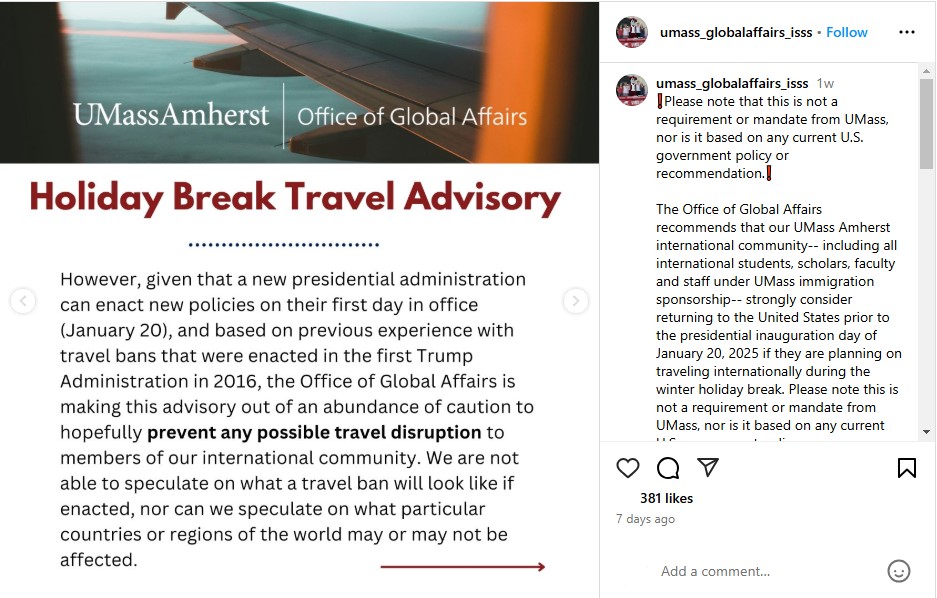
University of Massachusetts Amherst Instagram Recommendations
The Massachusetts Institute of Technology (MIT) and Boston University have also issued similar advice to international students about returning to the US after winter break before January 20. According to the announcement, some new decrees issued by the new administration may affect travel (mainly entry into the US) and visa processing. In addition, the transfer of power between the two US administrations may also affect personnel at consulates and embassies abroad, and thus affect visa processing times.
Earlier, shortly after the election results, Louisiana State University sent an email to all international students to reassure and organize a session to answer questions and concerns related to the 2024 US election results and the immigration policies that may be applied. The email said: "Please rest assured that there are no immediate policy changes, and the newly elected administration will not be in effect until January 2025."
In 2020, after the election results of President-elect Joe Biden, schools almost did not send out these announcements.
Nhi Nguyen, a fourth-year chemical engineering student at Louisiana State University, said that after every election, she feels a little worried about traveling outside the US. "Mr. Trump has made a lot of statements about immigration laws, and it makes me a little worried about getting in and out of the US, which might be more difficult," Nhi said. Nhi has been an international student in the US since 2017, from high school, preparing to graduate from university and looking for a job here. Nhi is worried that with the strict immigration policies, companies will limit hiring foreigners. "I hope the policies will not negatively affect international students," Nhi shared.
Previous unfavorable policies
In 2017, a week after taking office, former President Trump issued an executive order banning entry and stopping asylum applications for citizens of seven Muslim-majority countries: Iraq, Syria, Iran, Libya, Somalia, Sudan, and Yemen. This executive order halted the travel of international students.
The US student visa is different from some popular study abroad destinations such as European countries, Australia, and Singapore. When these countries issue student visas, international students will be granted an additional residence card valid for the duration of the course. When entering and leaving these countries, international students do not need to extend their visa if the residence card is still valid.
However, in the US, the visa duration depends on each country, in Vietnam it is 1 year, and international students will be issued an I-20, which is a Certificate of Eligibility for Non-Immigrant Student Status, to stay in the US legally based on the duration of their studies. However, when leaving the US, if the visa expires (and the I-20 is still valid), international students must renew (almost completely re-apply for a visa from scratch) to re-enter the US. This causes schools to be concerned about visa processing and processing time if international students leave the US and re-apply during the transition to a new Presidential administration.
In 2020, in the midst of the Covid-19 pandemic, the Trump administration issued a directive that international students who studied entirely online would not be allowed to stay in the US legally, as well as new international students who were preparing to enroll, if they did not have in-person classes, would not be issued an I-20. Harvard University and MIT filed a lawsuit against the Trump administration and won the case, protecting the rights of international students in the US.
According to the Los Angeles Times , the number of foreign students enrolling in American universities, which usually increases each year, has dropped 15% during President-elect Donald Trump’s first term. This trend began before the Covid-19 pandemic. In addition to his 2016 travel ban on citizens of seven countries, Mr. Trump launched a trade war with China, which has spread to universities. Some reports have noted delays in issuing visas in California for Chinese scholars and federal oversight of their research.
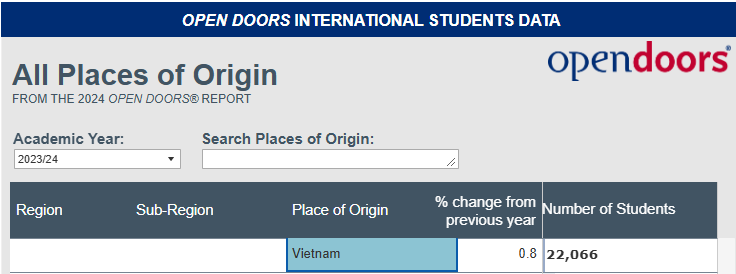
Data on Vietnamese students is on the Open Doors system.
Therefore, the announcements from schools this winter break are not only aimed at international students, but also at international graduate students and professors.
Dr. Truong Thanh Trung, an Assistant Professor of Mathematics at Marshall University in West Virginia, said he was not too worried about leaving the US and would still return to Vietnam for winter break with his family. He would return before January 20. However, according to his observations, some international students he knew were also quite concerned about Mr. Trump's re-election and some law firms also advised foreigners not to leave the US after Mr. Trump took office.
Vietnam has 22,066 students studying in the US, the 6th largest in the world.
According to data of According to the Institute of International Education , Vietnam has 22,066 students studying in the US, the sixth largest in the world, after India, China, South Korea, Canada, and Taiwan. More than 1.1 million foreign students are in the US for undergraduate, graduate, or post-graduate work training programs in 2023-2024, up 7% year-on-year.
In addition, more than half a million international students (502,291) enrolled in graduate studies in the US in 2023-2024, an increase of 8% and an all-time high. In addition, the number of international students staying in the US to gain practical work experience through the Optional Practical Training (OPT) Program reached a record high of 242,782 students, up 22% from the previous year.
International students make up 6% of all college students in the US and will contribute more than $50 billion to the US economy by 2023, according to the US Department of Commerce.
Source: https://thanhnien.vn/nhieu-dh-khuyen-cao-sinh-vien-quoc-te-tro-lai-my-truoc-khi-ong-trump-nham-chuc-185241123221108623.htm



![[Photo] Prime Minister Pham Minh Chinh chairs the Government's online conference with localities](https://vphoto.vietnam.vn/thumb/1200x675/vietnam/resource/IMAGE/2025/10/5/264793cfb4404c63a701d235ff43e1bd)



![[Photo] Prime Minister Pham Minh Chinh launched a peak emulation campaign to achieve achievements in celebration of the 14th National Party Congress](https://vphoto.vietnam.vn/thumb/1200x675/vietnam/resource/IMAGE/2025/10/5/8869ec5cdbc740f58fbf2ae73f065076)


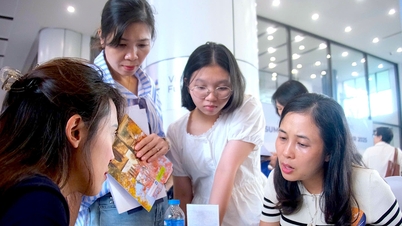


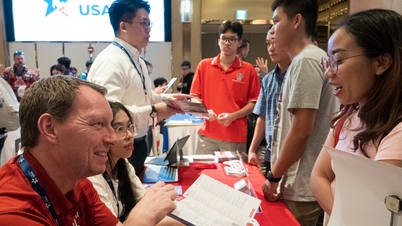
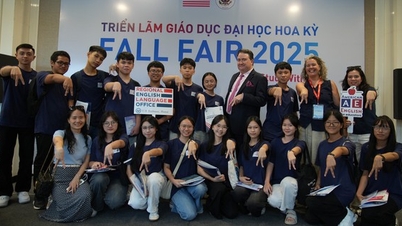



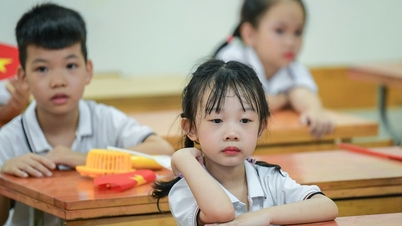
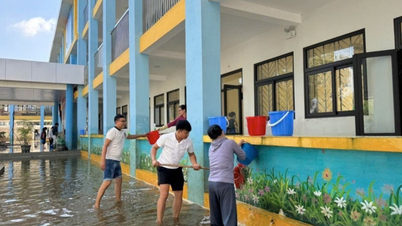

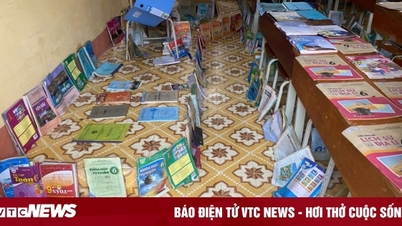

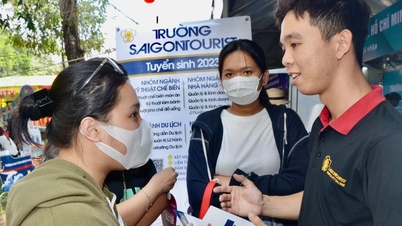

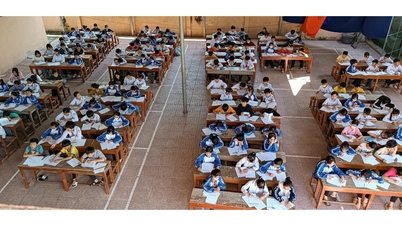
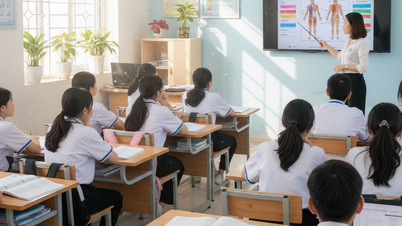






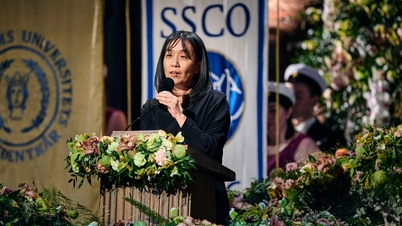

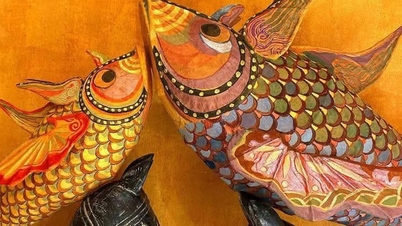

![[Photo] Opening of the 13th Conference of the 13th Party Central Committee](https://vphoto.vietnam.vn/thumb/1200x675/vietnam/resource/IMAGE/2025/10/6/d4b269e6c4b64696af775925cb608560)



















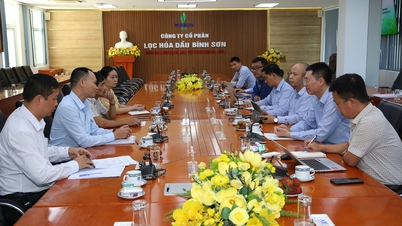




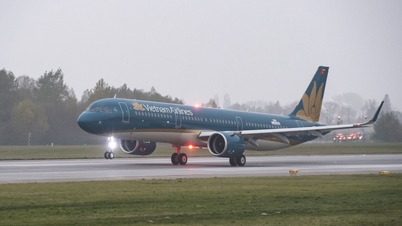
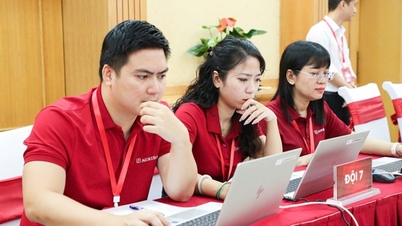
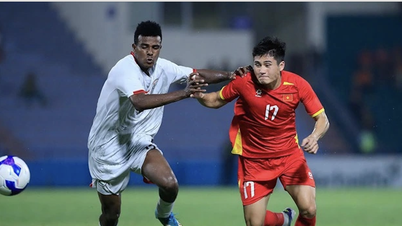
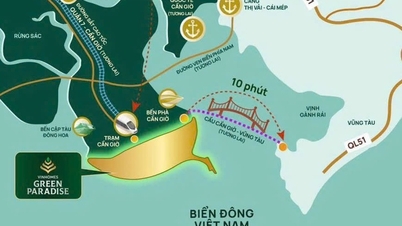
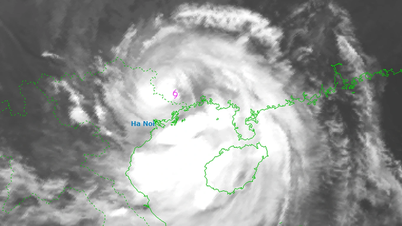
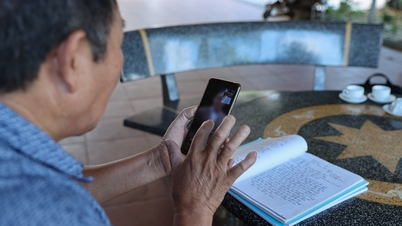
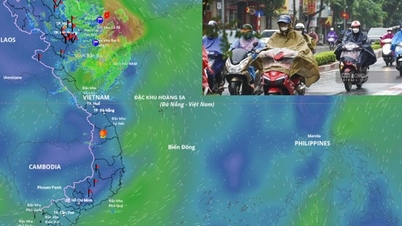




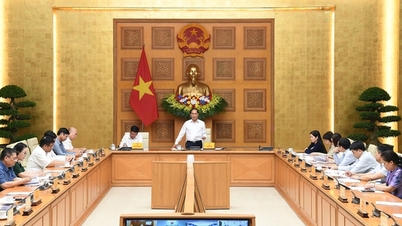
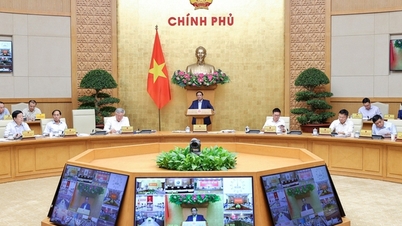



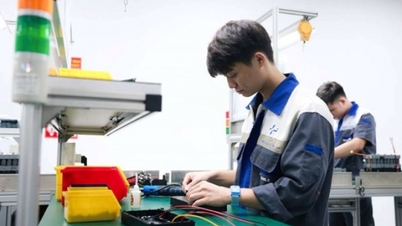

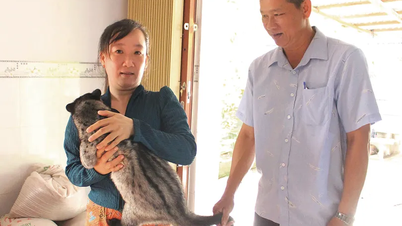

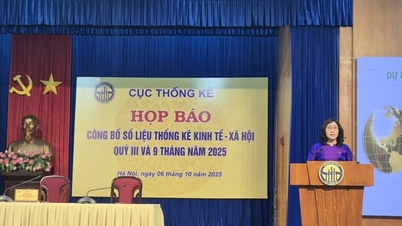

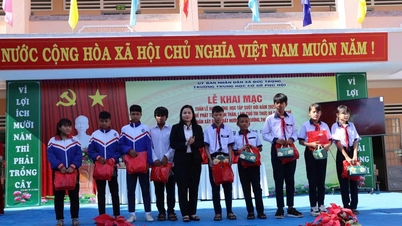

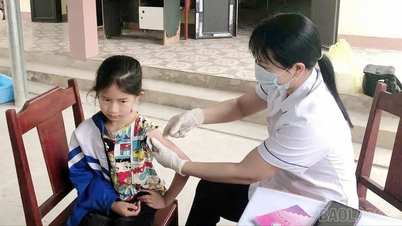

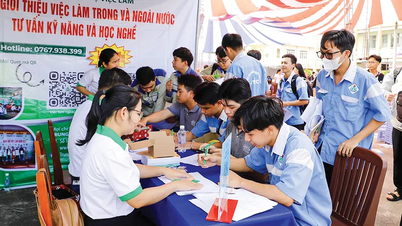












Comment (0)